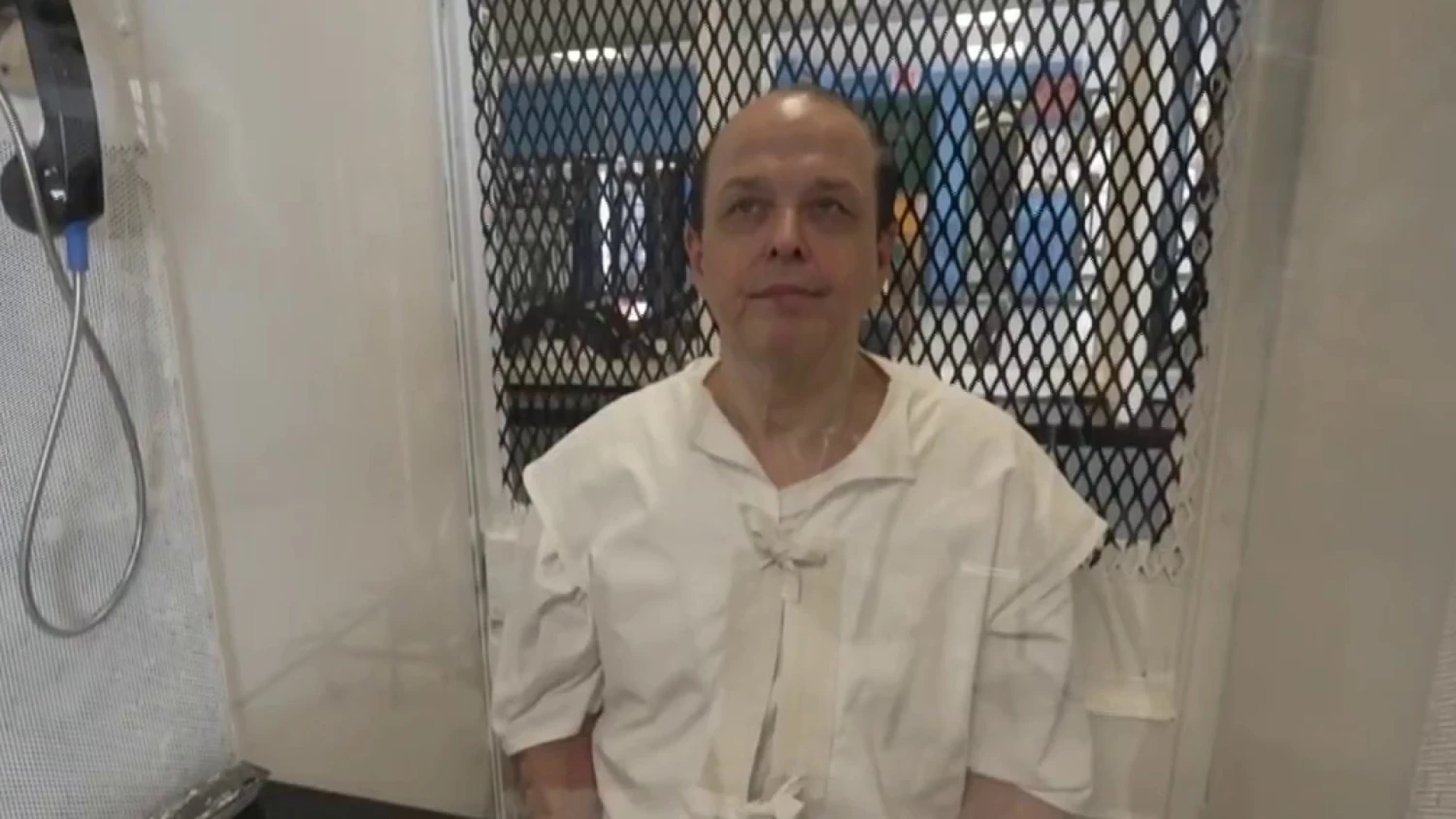Robert Roberson, a death row inmate in Texas, did not testify before the Texas House Committee on Criminal Jurisprudence as scheduled, despite a subpoena that halted his execution. Lawmakers aimed to hear his case, which is based on a murder conviction stemming from the alleged shaken baby syndrome diagnosis of his daughter, Nikki Curtis, who died in 2002.
The committee chair, Rep. Joe Moody, expressed concerns about Roberson’s ability to communicate effectively via virtual means due to his autism, emphasizing the expectation that he would appear in person.
Roberson was originally set to be executed for his daughter’s death, but the Committee on Criminal Jurisprudence’s subpoena led to a temporary stay of execution from the Texas Supreme Court.
Lawmakers were keen to explore whether Roberson’s case highlighted the need for legal reforms regarding the use of “junk science,” as his defense argues that the shaken baby diagnosis that led to his conviction is fundamentally flawed. Tensions arose over logistical disagreements between Roberson’s attorneys and the attorney general’s office concerning how he would testify.
During the hearing, other witnesses, including Dr. Phil McGraw and author John Grisham, provided testimony supporting Roberson’s claims. McGraw, who interviewed Roberson, pointed to significant issues in the original trial, particularly the heavy reliance on the shaken baby syndrome diagnosis. He argued that there were signs of a miscarriage of justice and called for a retrial, noting that Roberson had not received due process.

Texas Death Row Inmate’s Testimony Delayed Amid Controversy Over Shaken Baby Syndrome Conviction
John Grisham commended the committee for its actions in attempting to save Roberson’s life, describing their stance as courageous and bipartisan. Additionally, Terre Compton, a juror from Roberson’s original trial, testified that had she known of other potential causes for Nikki’s death, she would not have convicted him. Compton expressed deep remorse over her role in the conviction, highlighting the impact of the case on her conscience.
Roberson’s situation has become increasingly precarious as his legal avenues for appeal have dwindled, leading to a last-minute opportunity through the committee’s subpoena. His attorneys argue that his daughter’s death was misattributed to shaken baby syndrome and assert that other medical issues, such as double pneumonia and adverse medication effects, should have been considered.
They contend that Roberson’s autism may have affected his behavior during the investigation, which was misinterpreted as a sign of guilt.
The hearing highlighted ongoing debates about the validity of shaken baby syndrome as a diagnosis, with advocates on both sides presenting evidence and expert testimony. Critics of the diagnosis claim it lacks scientific reliability and that alternative explanations for symptoms should be fully investigated before attributing them to abuse. They point to a growing number of exonerations in similar cases where shaken baby syndrome was the basis for conviction.
Supporters of the diagnosis maintain that it is a legitimate medical determination that requires careful evaluation by professionals. They argue that this diagnosis remains crucial for understanding and preventing child abuse-related deaths. However, advocates for Roberson argue that reliance on this diagnosis in his case has led to an unjust conviction.
Texas lawmakers are also scrutinizing the application of a 2013 law known as the “junk science writ,” which was designed to provide a pathway for individuals to challenge their convictions based on new scientific evidence. Many committee members expressed disappointment that this law had not been effectively utilized in Roberson’s case, indicating a need for legislative reforms to ensure that individuals facing wrongful convictions have access to justice.
As the Texas Supreme Court deliberates on the legal issues surrounding Roberson’s case, there is a growing urgency for a resolution. The committee’s chair has indicated that discussions with the attorney general’s office are ongoing, and they remain hopeful for a quick resolution that would allow Roberson to testify soon.
Roberson’s case has ignited discussions about the integrity of the justice system, the reliability of medical diagnoses in criminal proceedings, and the need for legal reforms to prevent wrongful convictions. The outcome of these proceedings could have significant implications for Roberson and potentially for other cases relying on similar medical evidence.
